COVID-19: Impact on Apartment Marketing (Webcast Summary)

To support the multifamily community through the current COVID-19 crisis, we’ve launched a series of discussions centered around its impact on the rental housing industry with the latest data, expert insights and actionable measures stakeholders can take to minimize fallout. Register for upcoming webcasts and watch previous episodes on-demand at the COVID-19: Resource Center.
This is a condensed summary from the webcast, COVID-19: Impact on Apartment Marketing, broadcast on April 23, co-hosted by RealPage VP and Deputy Chief Economist Jay Parsons and LeaseLabs SVP Business Development Brock MacLean, with special guests Sheri Killingsworth, Vice President Marketing & Communications at Lincoln Property Company; Ryan Perez, Vice President of Marketing at CF Real Estate Services; Sue Essa, Vice President Training and Development at Fairfield Residential; Chris Brown, Senior Manager Technology Property Management and Optimization at Prime Group Residential; and Rich Hughes, Head of Data Science at RealPage.

LATEST APARTMENT MARKET DATA
Despite the good news that both large and smaller metros were seeing an overall decrease in new Coronavirus cases—with Albany, GA; New Orleans, LA; New York Metro; Edwards, CO; and Houma, LA topping the charts for the biggest decreases —another 4.4M US workers filed unemployment in the week ending April 18, bringing the unadjusted total for unemployment filings over the last 5 weeks to more than 26M.
The fallout from this unprecedented job loss has leasing traffic, guest cards and new leases continuing to trend downwards. Although these fundamentals were down dramatically YoY, demand was better than late March and early April numbers with new lease signings landing at 15.6%. This activity proved to be much better than the market anticipated—with the most extreme forecasts having predicted a decline of 80%-90%.
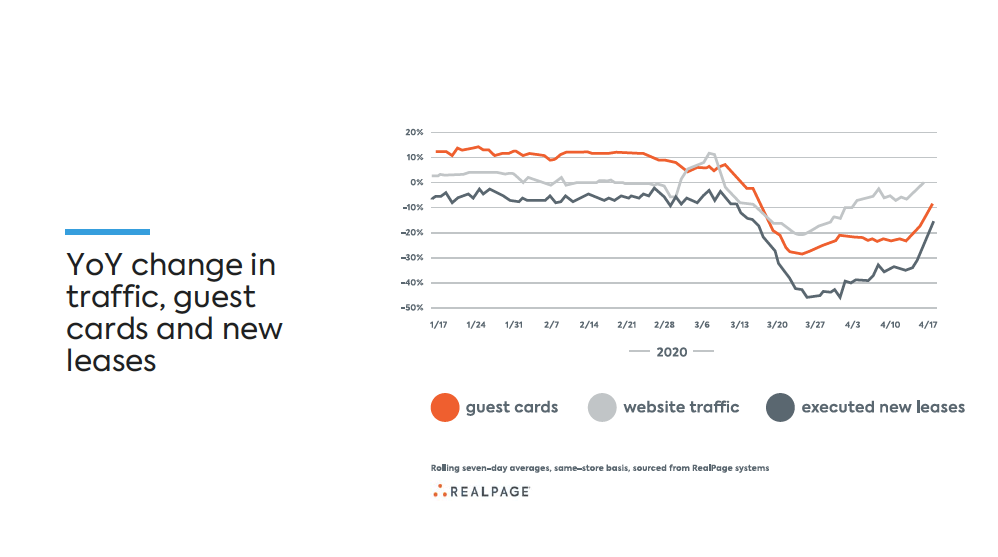
Rescinded move-out notices continue an upward trajectory that has surpassed 3.5% as of April 18. “We monitor top-of-the-funnel activities and marketing metrics daily and see a precipitous drop in traffic and fewer renewals but more rescinds for move-outs. Ultimately, this means marketers need to be prepared to do more with less because there is less raw traffic coming through the door,” emphasized Rich Hughes, RealPage’s chief data scientist.
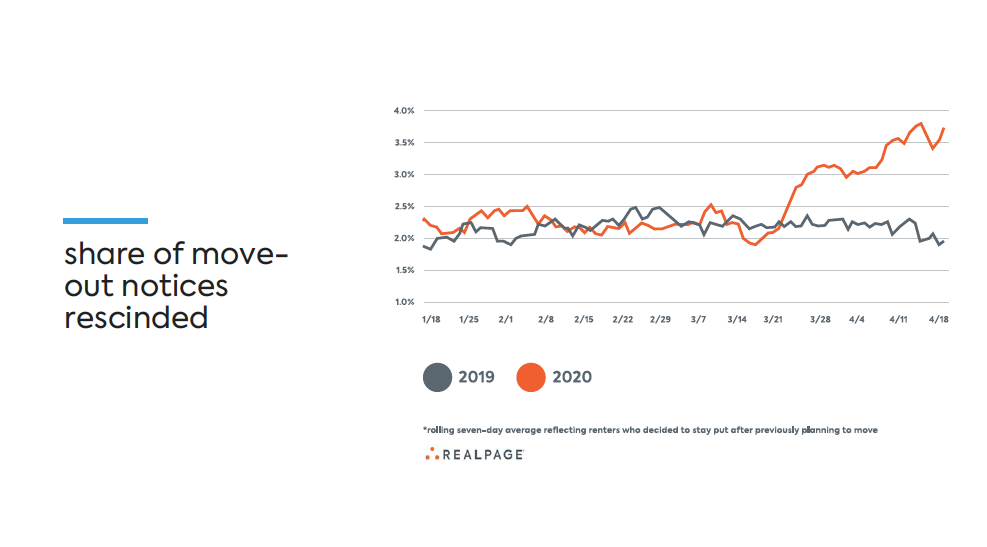
APARTMENT SEARCH TRENDS INDICATING LEASE DEMAND
Analysis of the most frequently searched terms by renters (e.g., “apartment for rent”) and the most frequently searched terms during the onset of COVID-19 and its proliferation (e.g., “coronavirus”) reveals behavior that could be indicative of near- term leasing activity. During March, when organic searches for “coronanvirus” peaked, “apartment for rent” queries saw a drastic decline. However, as of mid-April, “apartment for rent” queries reversed their downward trend while “coronavirus” queries declined, suggesting some lease demand.
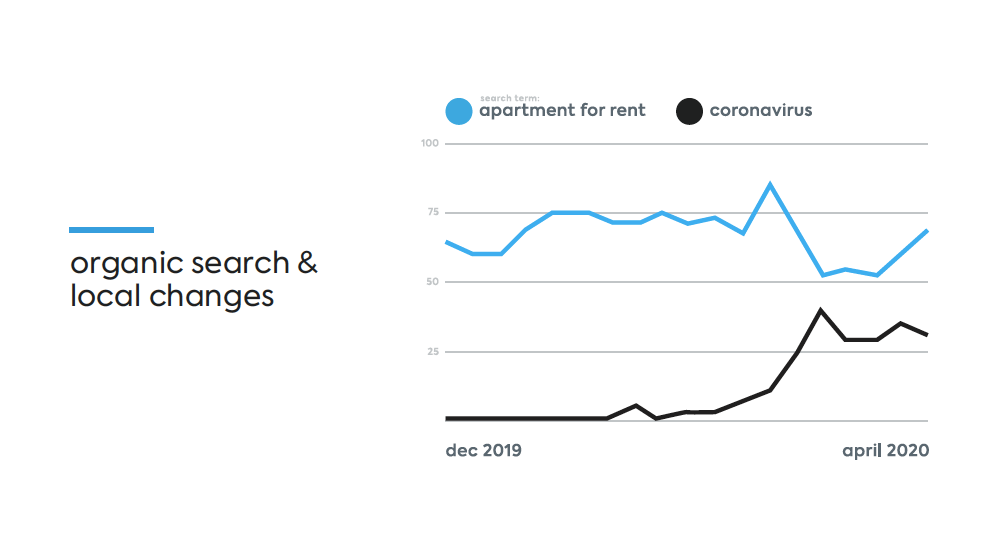
MINIMIZING COVID-19 IMPACT
4 Best Practices from Leading Multifamily Marketers
The COVID-19 pandemic has accelerated the transition to the virtual leasing experience as the primary vehicle for discovering, engaging and protecting prospects and residents. Social media trends showed an increase of over 10M active users for Facebook and Instagram in the month of March alone, underscoring this tectonic shift.
Over a two-week period in April, virtual tours also increased impressions by nearly 10% and clicks by 18%. The views of display advertising have nearly doubled over a 7-week period and email open rates have increased exponentially.
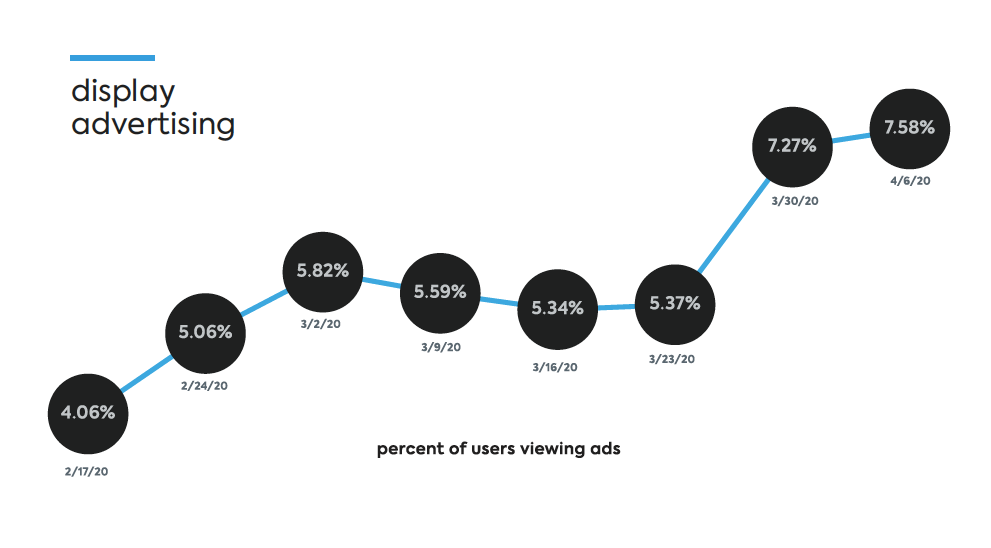
Digital is now the anchor for your brand and marketing strategy. Hughes underscored the point: “The effectiveness of your marketing strategies under these new circumstances will depend on the digital savvy of your marketing team. Those who are adept with it will do disproportionately well.”
Following are the 4 most effective marketing practices the industry’s top executives employ with their teams to execute strategies that are helping to reverse the negative impact of COVID-19 challenges.
1. Be Relevant – Improve Your Digital Presence
Make sure your web presence stays current and relevant, speaking directly to prospect and resident needs and concerns. CF Real Estate’s Ryan Perez identified what is essential for surviving in the virtual environment: “Your website is the most essential thing you have now. It’s important to take a look at copy, content, imagery and make sure this vehicle continues to service customers. Monitor traffic plans, access the portal and identify the most used entry points and adapt your online strategy accordingly.”
Staying relevant means knowing how to segment and prioritize your digital resources (e.g., paid search campaigns, ILS) and allocate your dollars appropriately to ensure you’re promoting your community assets to the right prospects at the right times. Perez added, “We immediately retooled any physical contact and strategy to 100% digital, which meant redistributing our marketing spend—20% of our paid ads were not active prior to the pandemic.”
2. Show Up – Connect with Prospects and Drive Engagement
Now, more than ever, it’s important to deepen your connection with prospects through more meaningful communication. Sue Essa shared how Fairfield is ‘showing up’ for its prospects: “Additional communication has become really important. We accelerated our virtual strategy full throttle with a 100% virtual leasing experience that we enhance by taking advantage of points of engagement on the website to cultivate more experiences with prospects, like virtual collaboration meetings. We also give them the flexibility to conduct self-guided tours on site. And once they complete the leasing process, we’re now providing touchless move-ins to make them feel even more protected.”
Perez added, “We’re making sure people know we’re open and here to serve them safely in a virtual environment. We’re also making sure our customers and residents and vendor partners know we’re in this together and that we’re going to make it through together.”
3. Be Helpful - Increase Focus on Resident Retention
Retention rates are rising YoY and the market is on track to see a 60% retention rate for the month of April, but the increase is largely tied to renters asking for short-term extensions to wait out shelter-in-place ordinances.
Although the root cause is driven by economic repercussions of the pandemic, the responsibility to deliver high-quality service and engaging experiences to residents is paramount in uncertain times when these actions can be therapeutic for the resident, beneficial to the community and advantageous for the property.
Chris Brown noted how ActiveBuilding was helping Prime Residential increase their focus on resident retention, humanizing their brand by serving as both a practical and social tool for residents: “We completed transition across our portfolio to ActiveBuilding and use it extensively to communicate updates and social media, where we’re receiving positive feedback. We’ve seen [that] people are now more comfortable with online payments and this has driven even more people to it.”
Lincoln Property’s Sheri Killingsworth noted the various campaigns and activities her communities were zealously coordinating to keep residents engaged and encouraged. “We’ve intensified our efforts and are doing many more contests and pushing out so much more content on social channels at a national level and with our regional teams. Our ‘Home Together’ campaign asks residents to post photos of what they’re doing at home. We’re giving out Amazon gift cards as prizes and have gotten great engagement.”
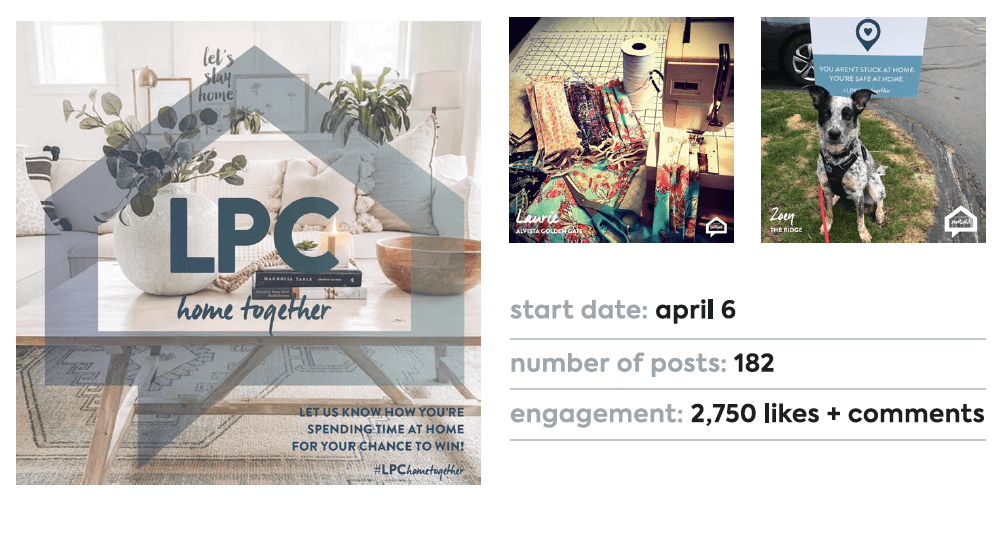
4. Look Forward – Despite Tremendous Setbacks
The industry and the economy will recover from these tremendous setbacks. Marketers are visionaries, and the best are always looking forward and ready to take on and leverage what’s next to meet—and surpass—business objectives. Despite the many challenges the pandemic has created, there have been bright spots that are helping advance individual enterprises as well as the industry as a whole.
Brown acknowledged: “The one upside is that everyone is realizing what is possible with tech and how authentic an experience you can create with a virtual tour.”
Killingsworth was even more prescient: “I do think the definition of community is going to change, as well. The real magic is using tech to get a lens to see what is right around the corner.”
For the complete discussion from COVID-19: Impact on Apartment Marketing, including all interviews and poll results, watch the webcast on-demand here.
[2] https://oui.doleta.gov/press/2020/042320.pdf
[3] Based on case studies and data compiled by RealPage and LeaseLabs